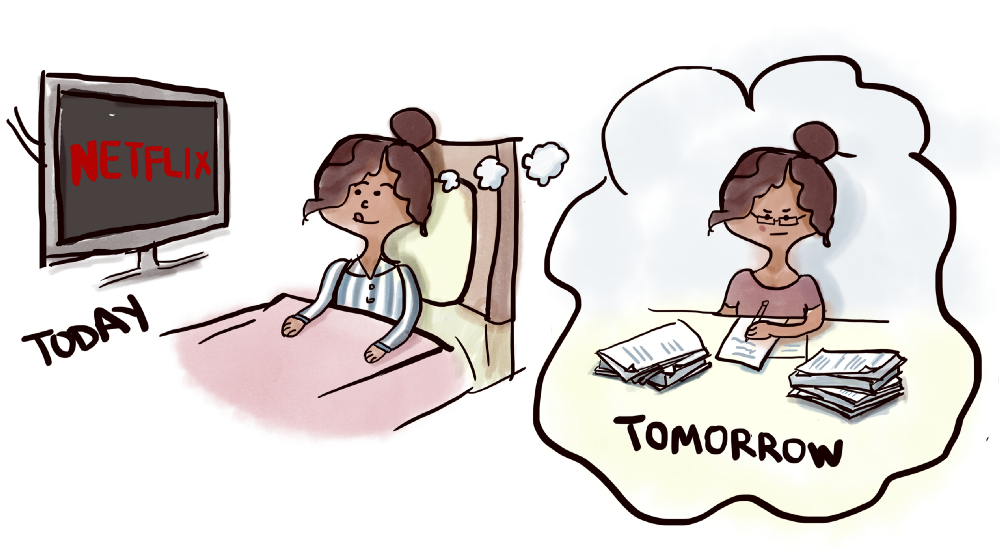Hyperbolic Discounting: Why You Make Terrible Life Choices. Hyperbolic discounting is a cognitive bias, where people choose smaller, immediate rewards rather than larger, later rewards. Imagine you’re given 2 choices: get a $100 today or $120 in a week. You know setting money aside in a 401K is important for your retirement. We evolved instead to make decisions quickly. There are ways we can get better at making good choices … 1 . Empathize with your future self You put things off to future you because it’s easy. Consciously evaluating the dependability of future you can serve as motivation to actually do the things you want to do today. Big goals, like learning to speak Spanish or losing 20 pounds, take a long time to achieve and so are susceptible to the far-off reward curse of hyperbolic discounting. Given the choice between watching TV now (an immediate, but smaller reward) and working toward your goal (a big, but far away reward), you will most likely choose the immediate and small reward.
Nir’s Note: This guest post is written and illustrated by Lakshmi Mani, a product designer working in San Francisco.
Have you ever had a mounting pile of work you know you need to do but for some reason didn’t? There’s an important deadline looming, your boss is breathing down your neck, the pressure is on — all signs are pointing to you getting it done. Yet you put it off, turn on Netflix, and fantasize about how you’re going to crush it tomorrow.

You’ve fallen victim to hyperbolic discounting.
Hyperbolic discounting is a cognitive bias, where people choose smaller, immediate rewards rather than larger, later rewards.
Researchers ran a classic experiment that illustrates the phenomenon. Imagine you’re given 2 choices: get a $100 today or $120 in a week. Here’s how most people choose:

But when the same question is asked with the same one week interval, but a year in the future, we largely choose the bigger reward.

We are impatient and prefer immediate rewards in the short-term. But we’re more patient and wait for better rewards in the long term.
Unfortunately, the choices you have to make in everyday life are not as clear or easily comparable. Say you’re going on vacation in a few of months. How do you choose between enjoying a cookie right now versus looking good at the beach?

Many important decisions concerning our health, wellness, finances, and careers are affected by hyperbolic discounting. All of these choices require trading off immediate pleasure for your future good.
When you procrastinate, you opt for the instant gratification of enjoying yourself now rather than the future reward of accomplishing the things you set out to do.
You know setting money aside in a 401K is important for your retirement. However, you instead choose to splurge on an expensive night out with friends, which is more fun right now, but might not be the best choice for future you.
Why am I this way?
Cognitive biases are mental shortcuts we use, which generally help us make quick decisions, but don’t…

COMMENTS